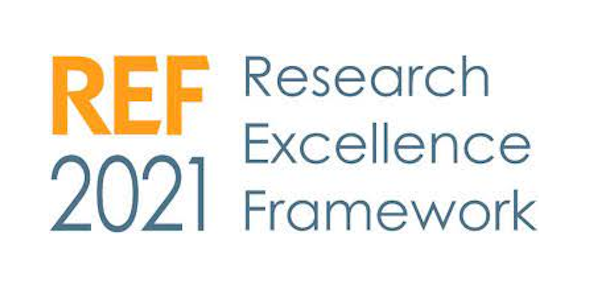
Submitted by Anna Davies on Wed, 11/05/2022 - 09:58
The results from the latest Research Excellence Framework (REF) have highlighted the global impact of Cambridge’s research in the field of Veterinary Medicine.
91% of the Department’s overall submissions within the Agriculture, Food and Veterinary Sciences Unit of Assessment have been rated as ‘world leading’ or ‘internationally excellent’, demonstrating the major impact that researchers in our department are making every day.
The REF is the system for assessing the quality of research in UK higher education institutions and is undertaken by the four UK higher education funding bodies, including Research England.
Among the data submitted by universities and other institutions are case studies that describe the impact of their research – where they have made a difference to society, health, the economy, for example.
The Department of Veterinary Medicine returned some 63 researchers to the REF (51.9 FTE), an increase of 50% compared to the previous exercise in 2014. The overall weighted score for the Cambridge submission to the Unit of Assessment was 50% 4* and 41% 3* (91% 3* or 4*, up from 80% in the 2014 REF). Within the unit of assessment, 52% of Cambridge’s research outputs were awarded the highest rating of 4* overall, meaning they are ‘world-leading’. This is double the number from the 2014 REF (26%). A further 41% of outputs were rated 3* overall (internationally excellent).
The average output score – the ‘grade point average’ – for Veterinary Medicine has increased to 3.4 reflecting the high quality of the researchers and their outputs in the Department. This compares to 3.0 in 2014.
Impact case studies were submitted as examples of how our research makes a difference including research on bovine tuberculosis, antibiotic resistance, improving the health of dog breeds and veterinary diagnostics, which were scored at 90% 4* and 3*.
Professor James Wood, Head of the Department of Veterinary Medicine, said:
The outcome of this exercise has demonstrated that real improvements have been achieved in veterinary medicine since the last evaluation in 2014. The outputs and impacts of our work have been scored very highly which is a direct result of the talent and hard work of our researchers. We took a very inclusive approach to submitting everyone eligible, particularly ensuring that the contributions made by early career researchers and senior research associates were fully recognised in our return. In all, the results demonstrate that Cambridge researchers continue to deliver excellence in research that creates real impact for society. I would like to take this opportunity to thank everyone for their sustained contribution over the last 7 years.
Professor Anne Ferguson-Smith, Pro-Vice-Chancellor for Research, added: I would like to congratulate and thank everyone who has taken part in this year’s REF for all their hard work, which we believe has paid off in these results. What we see today is not just the excellence of Cambridge research, but also the breadth of its impact, with researchers across many disciplines bringing a fresh perspective on how we tackle major problems facing our world today.” For the purpose of the REF, each academic discipline is assigned to one of 30 out of a possible 34 units of assessment such as Clinical Medicine, Chemistry, Business and Management Studies and Philosophy. Each unit is judged by three criteria – outputs (such as publications, performances, and exhibitions), their impact, and the environment that supports research.
Our global research
Cambridge research spans all seven continents, covering more than 100 countries, from the Arctic to Zambia. Our researchers partner with organisations in these countries to ensure that our collaborations address local needs and benefit those communities most in need. We highlight one of our research impacts below.
Improving the health of flat faced dog breeds
Research at the University of Cambridge led to the development of the world’s first objective testing criteria for brachycephalic obstructive airway syndrome (BOAS), a condition that affects flat-faced dogs.
Flat-faced dogs such as pugs, bulldogs and French bulldogs have increased in popularity in the past decade, with French bulldog registrations reaching 36,785 in the UK in 2018. In recent decades, breeding selection for extreme brachycephalic features (typically short noses) has resulted in dogs that are predisposed to upper airway tract obstruction due to an excess of soft tissues in that region, causing respiratory distress and BOAS. Medical or surgical intervention is required by 65% of pugs.
The low-cost Functional Grading Scheme developed by the researchers provides a standardised method for veterinarians to improve diagnosis and treatment outcomes for affected dogs, where there previously was no such method for quantitative assessment.
Within the UK, 40 vets are trained in the technique, which was endorsed by the Kennel Club in 2019 and the Fédération Cynologique Internationale, which represents pedigree dog organisations in 99 countries, in 2020.
Stakeholder and media engagement by the researchers has raised public awareness of BOAS. This has led to a revision of pedigree dog health certification standards, changed how Disney advertised their recent film featuring a pug, and contributed to a 38% reduction in the number of flat-faced dog purchases within the UK from 2018 to 2019.


